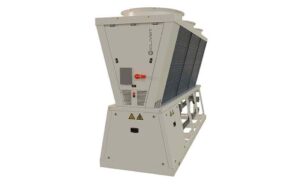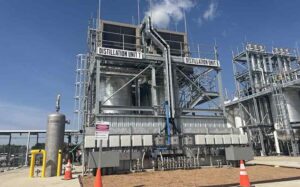£150,000 for smart sensor project
16th March 2015 UK: A new project to produce smart sensors which can detect and change air quality and energy conditions in buildings has been established in Glasgow.
UK: A new project to produce smart sensors which can detect and change air quality and energy conditions in buildings has been established in Glasgow.
Glasgow Caledonian University (GCU) is working with Cumbernauld-based company Gas Sensing Solutions Ltd on the project which could help to provide comfortable living environments, reduce power consumption and protect the environment.
Led by GCU’s Dr Hadi Larijani of the School of Engineering and Built Environment, the 18-month research project has secured £150,000 from the Centre for Sensors and Imaging Systems (CENSIS).
Gas Sensing Solutions, a manufacturer of low energy consumption wireless sensors, will work with GCU researchers to investigate the use of smart sensors in a range of applications, such as building energy management systems, to anticipate and respond to changing conditions with minimal human intervention.
The majority of sensors used are currently incapable of making intelligent real-time decisions. Smart sensors using random neural networks will provide a self-learning network. Wireless sensors from Gas Sensing Solutions are based on measuring carbon dioxide, temperature and humidity, with no need for a connected power source.
Professor Des Gibson, chairman of Gas Sensing Solutions, said: “The project provides key technology input from world-class random neural network capabilities at GCU, combined with existing GSS gas sensor technology. The project offers potential to extend and enhance product performance, opening up access into new and commercially lucrative global markets.”
The global sensor systems technology market is expected to grow to an estimated $605bn by 2015 and wireless solutions are expected to grow at over 48% per year.
GCU is a university partner in five of the eight Innovation centres launched so far by the Scottish Funding Council, spanning oil and gas; sensors and imaging systems; digital health; construction; and big data.
GCU and Gas Sensing Solutions are also working together on a £149,000 Technology Strategy Board (TSB) Collaborative R&D Project from the recent ‘Enabling the Internet of Sensors’ funding call. This project will determine feasibility that random neural networks (RNN) can provide necessary intelligent self learning and adaptive management capability for autonomous carbon dioxide/humidity/temperature wireless sensors within buildings – energy and indoor air quality demand control and management with minimal human intervention.







